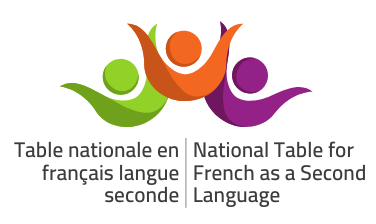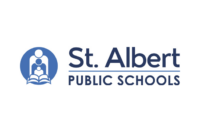Project Overview
- Research topics
- Region: Ouest
- Project Overview

Project status
- Completed :
- July 2020-March 2022
Project manager or
resource person
- Eva Lemaire
- Director of French Education Programs, Campus Saint-Jean
Partner organization(s)
Campus Saint-Jean, University of Alberta
Enhancing the Education Program at Campus Saint-Jean
The project aimed to enhance its teacher preparation program, (1) to improve the Education Program courses to make them more practical and better aligned with the Teaching Quality Standard (TQS), and (2) to better support students in the Bachelor of Education (B.Ed.) and Bachelor of Education/After Degree (B.Ed./AD) Program with targeted initiatives and activities. The project provided new course materials for 4 of 20 compulsory courses and 12 workshops on new topics, along with additional support for students enrolled in the B.Ed. and B.Ed./AD programs. These courses and workshops were delivered as pilots during the year and, if successful, would be integrated into the program.
In Alberta, there is a shortage of qualified teachers to teach in French Minority Language schools (FML) and in French Immersion and French Second Language programs (FI and FSL). One of the main recommendations for addressing the problem is to improve the quality of education or teacher training programs. As noted in a recent market study conducted for the University of Alberta, "new graduates are not sufficiently well prepared to face the realities of Francophone and Immersion schools in Alberta.”
In addition, students preparing to teach in these two systems now also need to be familiar with Indigenous perspectives and issues, using technologies to support teaching and learning, and being an effective digital citizen.
The Campus Saint-Jean student population has also become much more diverse over the last 15 years: 60% of Education students are FI program graduates, 20% are from other countries or provinces and 20% are from Alberta's francophone schools. These diverse students have specific needs that require key adaptations to the programs.
This project aimed to respond to their needs by allowing for better professional integration once they entered the teaching profession. This can be achieved by improving collaboration between Campus Saint-Jean and the school system to ensure the programs are better aligned with the province’s new Teaching Quality Standard (TQS).
Activities
- Micro-training courses offered in 2020-21 on the following topics:
- Successful internships
- Online and blended learning
- Inclusion and well-being.
2. Workshops offered in 2021-22:
-
- Teaching grammar through children's literature
- Using a new lesson planning template
- Identity building for francophone students in a minority setting.
3. Digital badges:
-
- Digital badges were created and awarded to students who completed the five training courses under one of the three topics. Students could include this badge in their professional portfolio.
4. Webinars:
-
- Through a partnership with the provincial francophone consortium, students had access to a series of five webinars on the topic of interculturality.
5. Hiring qualified staff to support faculty in the following areas:
-
- Developing a diagnostic test on basic technology use skills
- Developing modules to build basic technology use skills
- Integrating Indigenous perspectives (hiring a visiting professor)
- Support for internship students who need it.
6. Collaborative projects between teachers and school stakeholders:
-
- Co-developing and co-teaching courses on the following themes:
- School and society: diversity issues
- Internship to familiarize students with the inclusive classroom in a francophone and immersion teaching context
- Introduction to teaching and orientation course
- Indigenous education
- Information and communication technologies
- Grades 4-6 literacy
- Teaching students with learning disabilities
- Teaching students with behavioural problems
- Learning assessment.
- Creating new resources through the co-development and co-teaching projects, including:
- Videos
- Slide shows
- Formative and summative assessment grids
- Interactive lesson planning template
- Teaching aids for the micro-training videos.
- Guest speakers from schools or Indigenous communities who share their experience and expertise.
- Holding mini-practicums in the schools to give students the opportunity to facilitate learning activities related to the educational planning course.
- Co-developing and co-teaching courses on the following themes:
Targeted Results
Main takeaways (learnings)
- Collaboration between professors-researchers involved in initial teacher training and those working in the field is essential (e.g., school principals, pedagogical consultants, teaching staff, etc.).
- The contribution of experts from the school environment enriches and updates the learning of students and future teachers.
Potential/desired collaborations
- Developing the language skills of future teachers
- Exchange on the challenges faced by students in a minority context
- Exchange of best practices
- Successful integration of immigrants into education programs, internships, etc. (adapting teaching concepts and relationships with students - cultural differences)
- Development of technological skills (basic skills, virtual teaching, support for student learning)
- Socio-emotional skills (building positive relationships with teachers, students, management, mental health, resilience, etc.)
- Team building within faculties of education to foster collaboration between teachers, for example.
- Integration of Aboriginal perspectives
- Bilingual identity building for immersion students.
- Interfaculty collaboration model
- Continuing and strengthening collaboration
- To expand authentic learning experiences in a francophone/francophile environment (e.g.: events, gateways, mobile applications, app francopasse).
- Knowledge sharing (in the field)
- Exchange of services.





